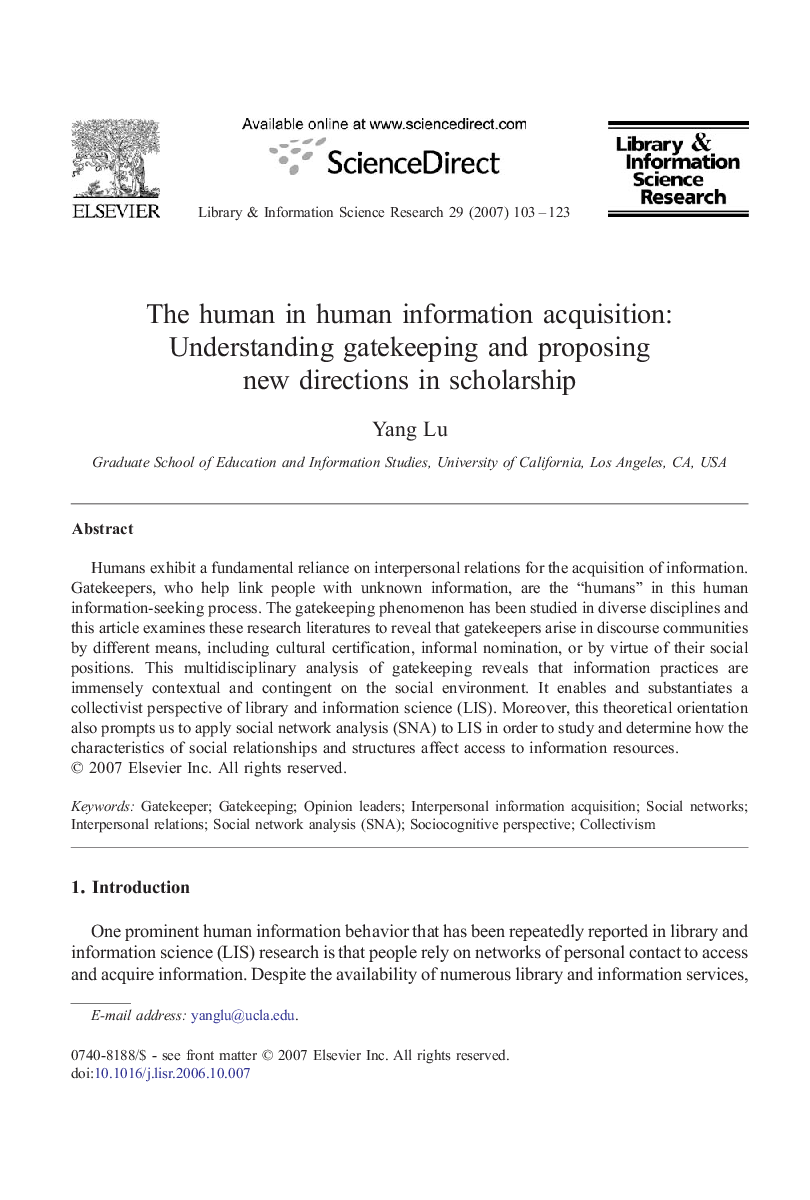| Article ID | Journal | Published Year | Pages | File Type |
|---|---|---|---|---|
| 1099516 | Library & Information Science Research | 2007 | 21 Pages |
Humans exhibit a fundamental reliance on interpersonal relations for the acquisition of information. Gatekeepers, who help link people with unknown information, are the “humans” in this human information-seeking process. The gatekeeping phenomenon has been studied in diverse disciplines and this article examines these research literatures to reveal that gatekeepers arise in discourse communities by different means, including cultural certification, informal nomination, or by virtue of their social positions. This multidisciplinary analysis of gatekeeping reveals that information practices are immensely contextual and contingent on the social environment. It enables and substantiates a collectivist perspective of library and information science (LIS). Moreover, this theoretical orientation also prompts us to apply social network analysis (SNA) to LIS in order to study and determine how the characteristics of social relationships and structures affect access to information resources.
